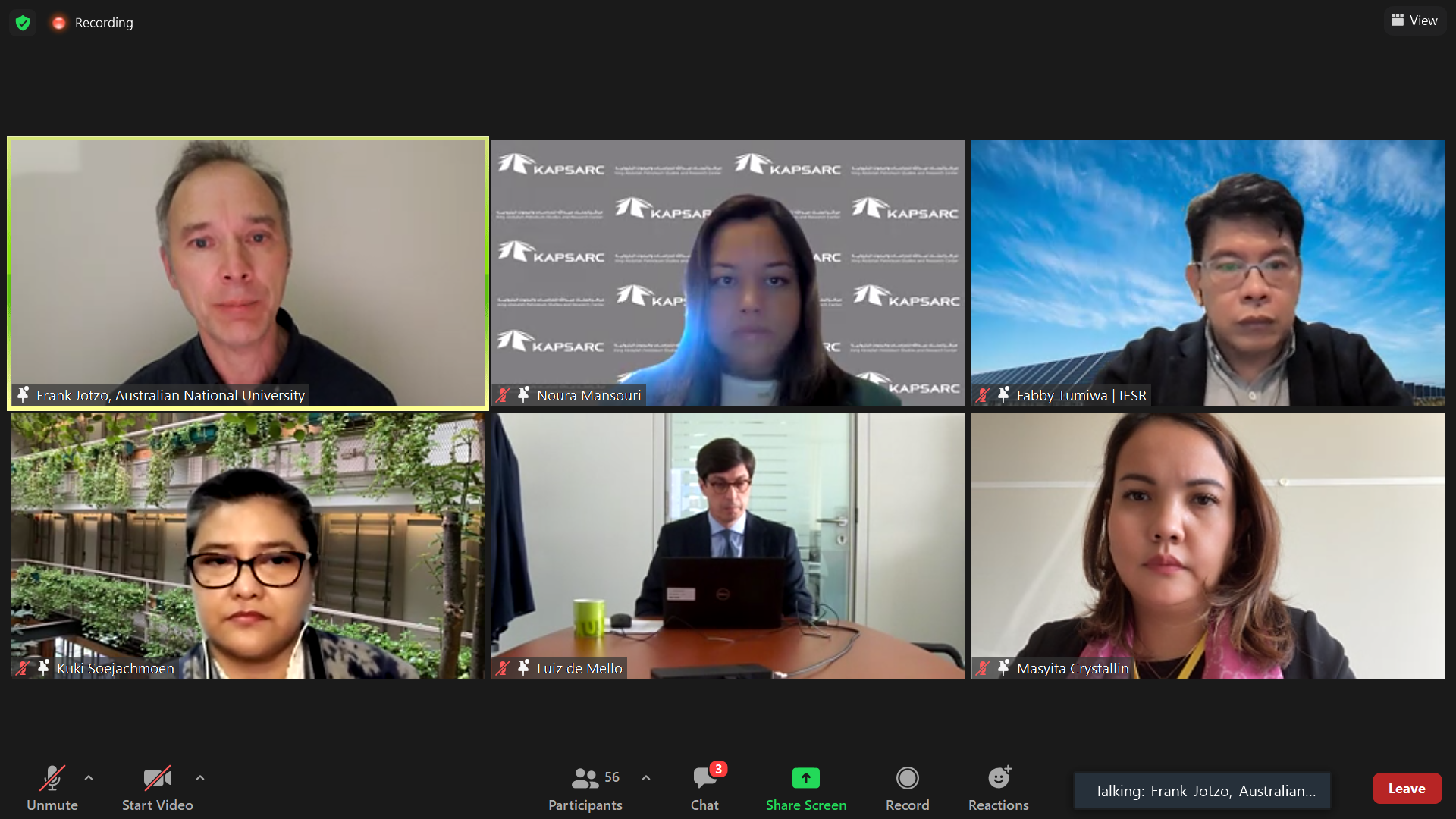Jakarta, 29 March 2022 – Just energy transition becomes one of the priority issues of Indonesia’s G20 Presidency 2022. Zooming in on a just energy transition issue, Yudo Dwinanda Priaadi, chair of the Energy Transition Working Group, explains that there are three issues related to energy transition to be accelerated i.e access, technology, and financing.
The energy transition is about changing the whole system of energy from fossil fuel-based to renewables-based. It involves multi-sector reform to get there. Ensuring energy access is provided at an affordable cost and way is important as it is mentioned in Sustainable Development Goals (SDGs) 7 i.e affordable and clean energy. Therefore providing infrastructure of clean energy as the first step of the energy transition becomes crucial.
Technology transfer needs to be taken care of, as in Indonesia’s context, all the technology of clean energy right now was developed by other countries. To avoid Indonesia becoming only the market for other countries ‘selling’ their technology, we need the knowledge of technology and even have to be able to produce the technology by ourselves.
Fabby Tumiwa, the Executive Director of IESR, believes that the most important issue of energy transition currently is financing.
“If we have sufficient financing, we can access the technology and build the infrastructure of clean energy. At the same time we will also create a low carbon economy system in the country,” he said.
Luiz de Mello, Director of Economics Department OECD, added that there is an opportunity to make progress in a low carbon economy as the world tries to get out of the pandemic situation. According to him, there are at least three things the government should do, including mobilizing investment for low carbon infrastructure, making regulations and standards, as well as managing labor investment including training and retraining for those previously working in the fossil industry.
“On an international level we also need policy coordination as we are addressing a global issue, we need a global solution,” Luiz added.
The government also must provide a predictable regulation and framework to attract investors to invest in renewable projects. Frank Jotzo, Head of Energy, Institute for Climate Energy and Disaster Solutions, Australia National University, emphasized the importance of providing a de-risking instrument to accelerate the energy transition.
“We realize that the investment needed (for energy transition) is enormous, yet there are a couple of things to do to figure out the way to finance the transition. For the note, it is a productive investment where most of the money goes for the upfront cost, and later we can enjoy the clean energy without too many costs needed,” Frank explained.
As the G20 President, Indonesia becomes the spotlight of its energy transition process. Masyita Crystallin, Special Advisor to the Minister of Finance on Macroeconomic and Fiscal Policy Ministry of Finance Indonesia, shares that the Indonesian Government strives for a just energy transition.
“Of course we aim for a just energy transition, meaning that stranded assets must be taken care of and the laborers who used to work in the fossil or mining industry are protected,” she explains.
Masyita also emphasized that the global policy mechanism should be ready as well to support the transition that happened per country.

